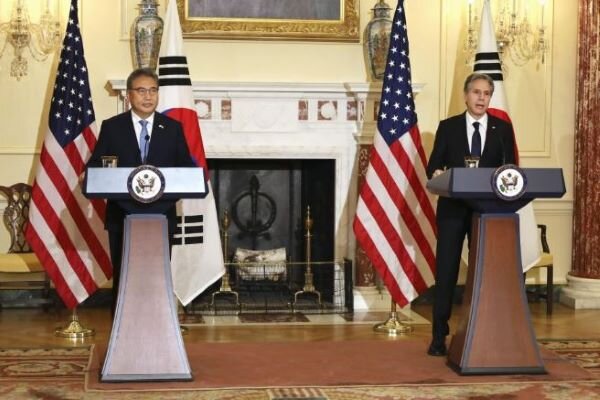Speaking in a joint press conference with the US Secretary of State Antony Blinken, South Korean Foreign Minister Park answered reporters' questions over the longstanding row with Iran over frozen funds and Iran's 2015 nuclear deal known as JCPOA.
"With regard to Iran, we want to have a mutually beneficial relationship, although we have some obstacles of frozen funds," the South Korean top diplomat said, adding that Korea will discuss the issue with Iran and also with the United States.
"In terms of JCPOA negotiations, we hope that this issue can be resolved as soon as possible, and if that happens then I think that these obstacles could be fixed as well," he further said.
"So we need more diplomacy and dialogue with Iran in order that we can have a positive result out of the negotiations on the nuclear issue," he added.
Blinken, for his part, made some claims regarding the JCPAO talks, and said, "We’ve spoken to this repeatedly in recent days – a lot of work went into seeing if we could return to mutual compliance with the JCPOA, working with the European Union, working with European partners, working as well with China and Russia over the past year or more."
And it is fundamentally up to Iran to decide whether or not it wishes to re-engage in that agreement because the work in terms of re-engaging in that agreement has for the most part been completed, he claimed.
"So they have to decide very quickly if they wish to proceed with what has been negotiated and which could be completed quickly if Iran chose to do so," Blinken further claimed without referring to Washington's hesitation to reach an effective agreement with Tehran.
He also spoke about the recent anti-Iran resolution at IAEA BoG and Tehran's measure of disconnecting the IAEA's surveillance cameras and claimed, "Now Iran has taken steps in response to the IAEA that make things even more challenging, including a return to the JCPOA as it, for example, pulls cameras out of places where the IAEA had them placed for monitoring."
RHM/PR


























Your Comment